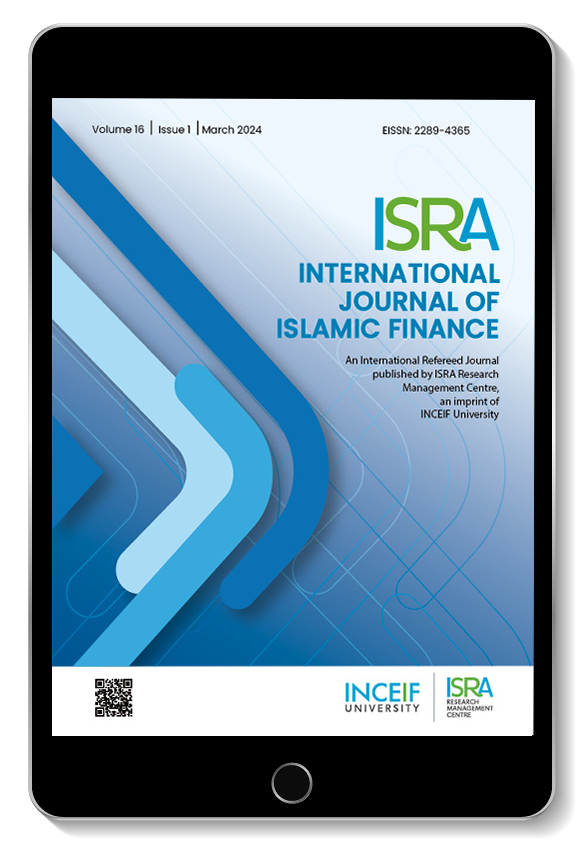现金宗教基金风险管理与永久限制难题
IF 1.4
Q2 BUSINESS, FINANCE
引用次数: 9
摘要
目的本文的目的是全面讨论相对于宗教基金固有的永久限制原则的风险问题。具体而言,它试图巩固传统金融和伊斯兰金融中的公理,如风险回报权衡和al-ghunm-bi-al-ghurm(负债伴随收益),具有宗教基金的永恒性质。总的来说,本文试图在风险自然发生的情况下,解决现金宗教基金固有的永久性限制困境。设计/方法论/方法论本文基于二次研究方法论;过去的文献,包括期刊文章、书籍、相关的金融公理、伊斯兰裁决和国家法令,都经过了批判性的审查,以说明其情况。关于国家法令,只使用了马来西亚的国家法令,因此仅限于对马来西亚案件的研究。本研究认为,通过将宗教基金风险管理,特别是现金宗教基金的风险管理与伊斯兰精神方法相结合,可以解决永久性限制和风险自然发生的困境。通过实施标准操作程序,向宗教基金利益相关者(捐赠者、受托人和受益人)灌输对宗教基金风险管理和伊斯兰精神的认识,利益相关者可以接受风险的现实,即使付出了所有努力,这也是不可避免的。换言之,鉴于与揭示的文本相一致的心智能力事先已经被详尽地使用过,对永久性的侵犯是可以免除的。实践启示本研究的结果可能会拓宽宗教基金受托人的投资途径选择,同时遵守宗教基金的永久限制。更重要的是,宗教基金受托人不会为了获得有保证的回报和保护宗教基金的主体而被迫投资于有息证券或参与任何高利贷交易。独创性/价值本研究通过重新分析金融和宗教基金的公理和概念,同时观察受益人的福利,为现金宗教基金风险管理提供了一个独特的视角。本文章由计算机程序翻译,如有差异,请以英文原文为准。
Cash Waqf risk management and perpetuity restriction conundrum
Purpose
The purpose of this paper is to comprehensively discuss the issue of risk vis-à-vis the perpetuity restriction principle inherent in waqf (Islamic endowment). Specifically, it attempts to consolidate the axioms in both conventional and Islamic finance, such as the risk-return trade-off and al-ghunm bi al-ghurm (liability accompanies gain), with the perpetual nature of waqf. Overall, this paper attempts to find a resolution to the dilemma of perpetuity restriction inherent in cash waqf against the natural occurrence of the risk.
Design/methodology/approach
This paper is based on the secondary research methodology; past literature encompassing journal articles, books, relevant financial axioms, fatwas (Islamic rulings) and state enactments is critically reviewed to present its case. In regard to state enactments, only Malaysian state enactments have been used, thus restricting the study to the Malaysian case only.
Findings
This study contends that the dilemma of the perpetuity restriction and the natural occurrence of risk can be resolved through the integration of waqf risk management, especially concerning cash waqf, with the Islamic spiritual approach. By implementing standard operating procedures that inculcate awareness on waqf risk management and Islamic spirituality in waqf stakeholders (waqif (donor), trustee and beneficiaries), the stakeholders may accept the reality of risk that is inevitable even after all efforts have been exhausted. In other words, the violation of perpetuity is exonerated given that mental faculties aligned with revealed texts have been exhaustively used beforehand.
Practical implications
Findings from this study may broaden the choice of investment avenues for waqf trustees while adhering to the perpetual restriction of waqf. More importantly, waqf trustees will not be forced to invest in interest-bearing securities or be involved in any usurious transactions just to obtain guaranteed returns and preserve the corpus of waqf.
Originality/value
This study offers a unique perspective on cash waqf risk management by re-analyzing the axioms and concepts of finance and waqf while observing the welfare of the beneficiaries.
求助全文
通过发布文献求助,成功后即可免费获取论文全文。
去求助
来源期刊

ISRA International Journal of Islamic Finance
BUSINESS, FINANCE-
CiteScore
3.40
自引率
17.40%
发文量
18
审稿时长
20 weeks
期刊介绍:
It is the aspiration of the editorial committee that IJIF achieves the highest rank in quality and substance. It is thus our aim that the journal be carried in the Thompson Reuters’ ISI and Scopus databases. By ensuring high standards in articles published in Islamic finance we ensure that further innovation and research is carried out and promoted in the Islamic finance industry and academia. IJIF publishes 2 issues per annum.
 求助内容:
求助内容: 应助结果提醒方式:
应助结果提醒方式:


